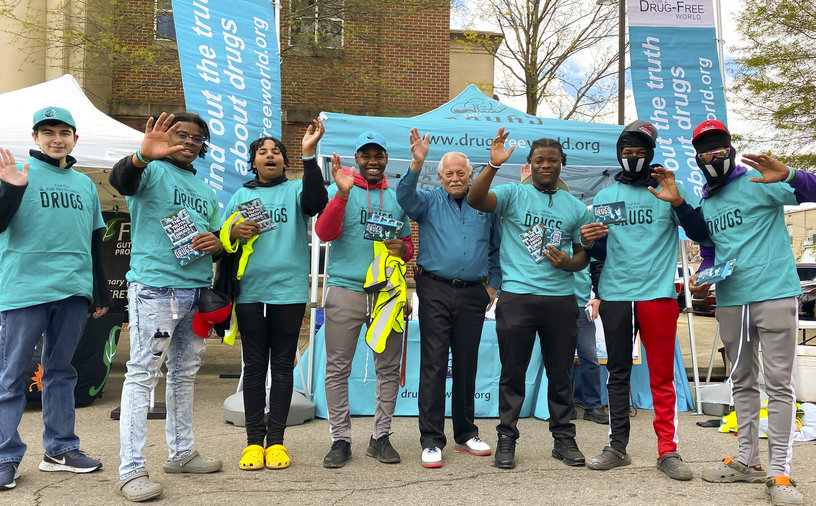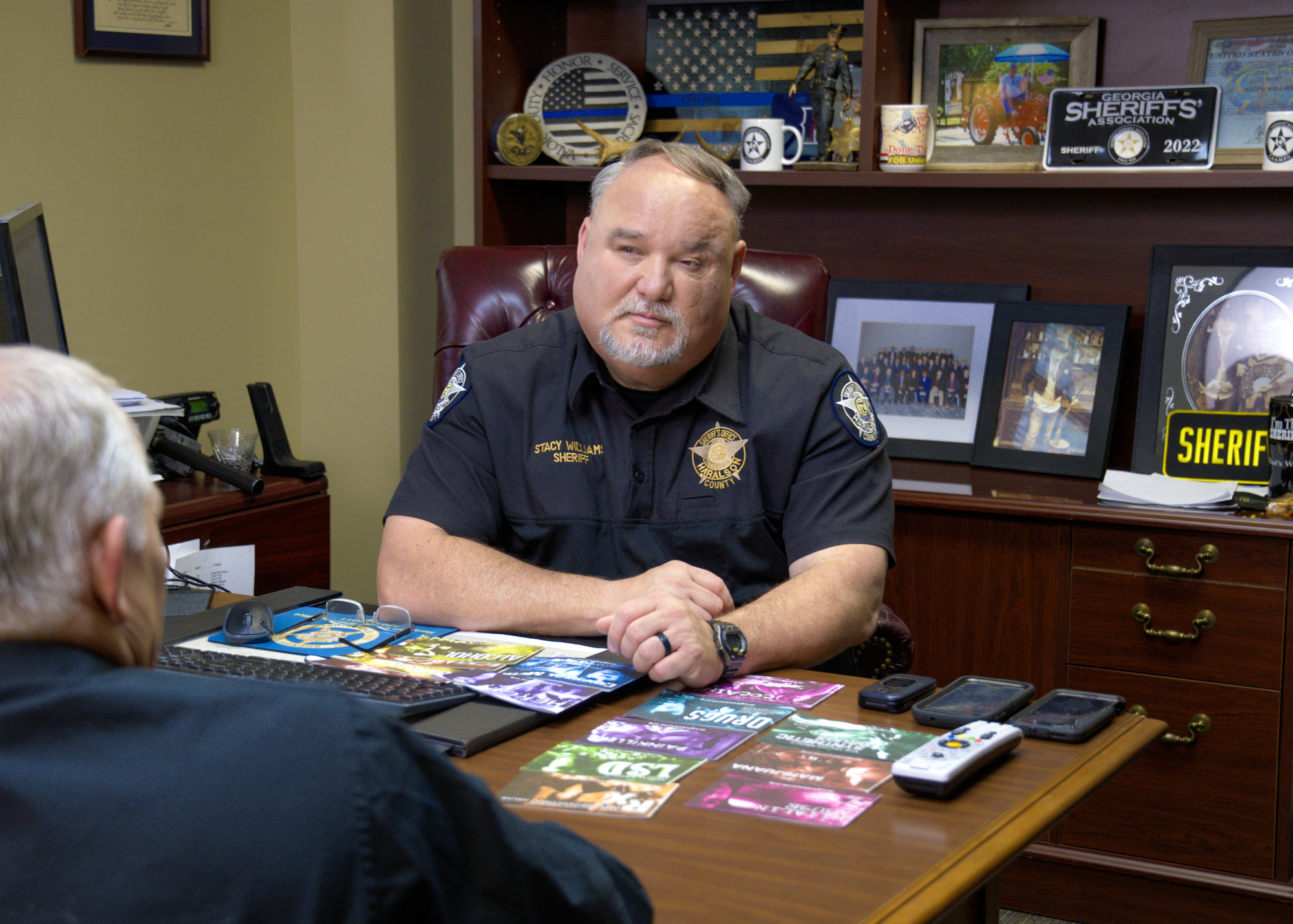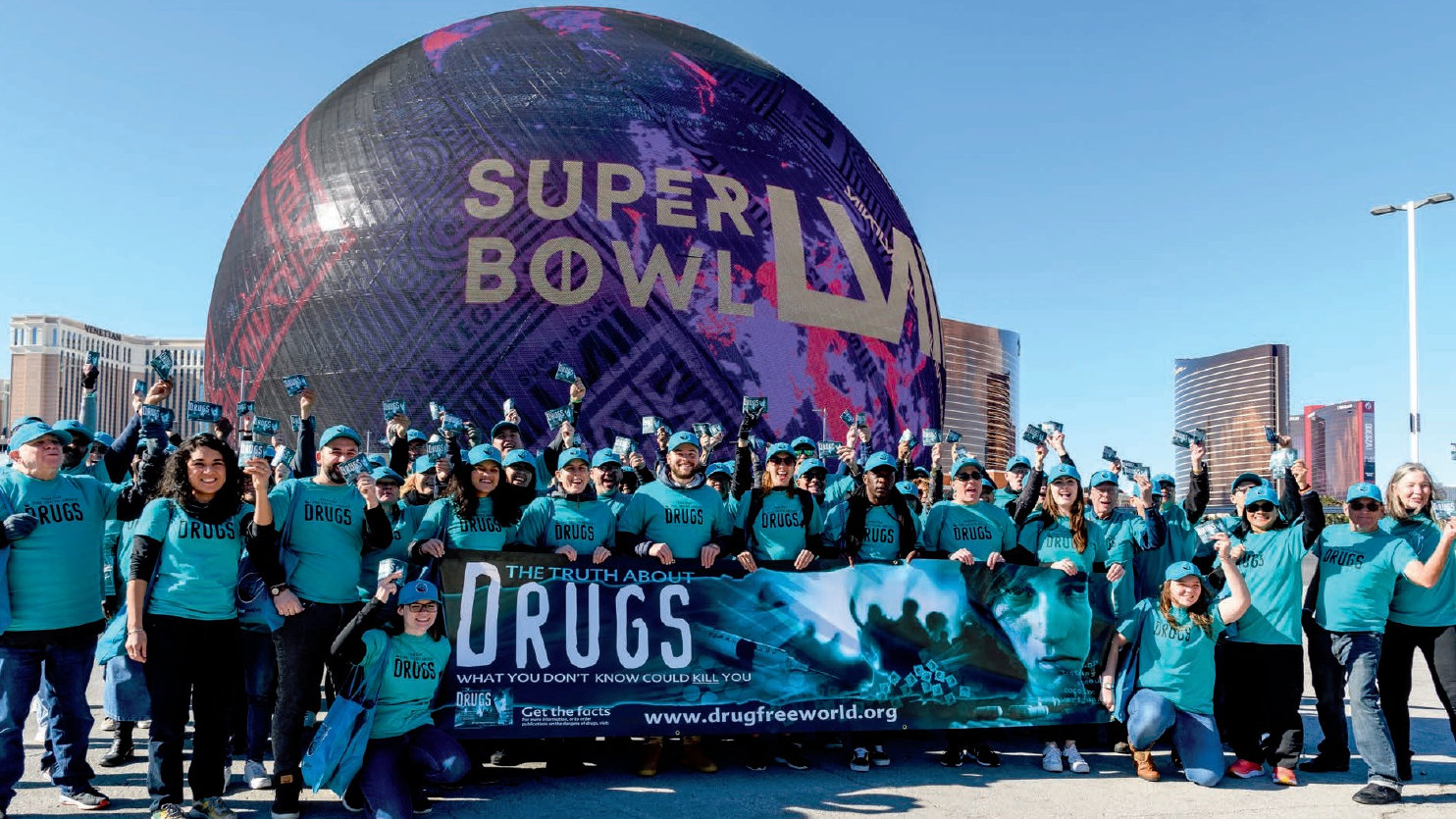What connects these individuals together, aside from being human and deserving a full life, is the scourge of synthetic drugs—death neatly packaged and marketed as “legal” and “safe” alternatives to marijuana. Lance Dyer, the boy’s father, confronted with the worst possible living nightmare of parenthood, raised himself up, faced off against a multibillion-dollar synthetic drug industry, and won.
Synthetic Drugs Are Legal, but They Can Kill
Synthetic drugs are legal, clean and convenient. Instead of getting your fix from a suspicious character in the shadows, you can go to the local convenience store. There, right up front next to the candy bars and in a cute “Scooby Snacks”-labeled package covered in cartoons, you can get a chemical concoction (containing ingredients like paint stripper and animal feces) that mimics the high you get from the real thing.

Dakota Dyer was not an addict. He was not in trouble. He had a happy home life. His mom and dad had all the conversations that good parents have with their kids: stay away from drugs and alcohol, be a gentleman, respect your elders. But the marketing worked, targeted as it was to impressionable kids with a weakness for bright colors and lovable cartoon characters. Dakota tried it that one day in 2012, and his parents came home to discover a pool of blood containing what had been their son.
A Club No One Wants to Join: Parents of Victims of Synthetic Drug Use
There are words for those who have lost a spouse: widow, widower. There is a word for a child who has lost both parents: orphan. But there is no word for a parent who has lost a child. It goes too much against nature, and is too unthinkable to credit with a label. When you lose a child, you are permanently disfigured, a spiritual amputee. Something of the light and hope that used to be in your eyes flickers out. You have violated natural law by outliving your progeny.
Everyday expressions like “the kids are coming by this weekend” now mean something slightly different—not all the kids, of course—just the surviving ones. Holidays and birthdays have an added measure of melancholy that wasn’t there before. Once happy memories now sting. Pure joy is somehow vulgar, wrong. Truth includes sorrow—always. There’s an added unmistakable hue that colors everything: I brush my teeth and our child is gone. We shop for salad vegetables and our child is gone. What a bright blue day, our child is gone. How’s the home team doing, and our child is gone.
Multiply that by the tens of thousands who have been forced into a club no one wants to join—parents of victims of synthetic drug use—and you have a segment of a population afflicted by something that time will never heal: an irreplaceable, irreversible loss that cuts all the more deeply for its senselessness.
Dakota Dyer’s father could have retreated into his grief, could have shied away and lived out the rest of his life in (quiet or loud) mourning and no single soul would have faulted him. Instead Lance Dyer, now the subject of a Voices for Humanity episode on Scientology.tv, chose to confront and fight the forces that killed his son—not out of vengeance, but to sound the alarm for his fellow parents.
A Parent Fights Back, Leading to Arrests and Lengthy Prison Terms
Shortly after the tragedy, Lance and his wife, Deanna, tracked down the manufacturing company responsible for their son’s death, NutriGenomics. Using investigative skills honed by his Army Ranger training, Lance went to the company’s dumpster and, weekend after weekend, the couple (avoiding surveillance cameras) pulled printed emails, packages, shipping manifests, customer lists, notes—anything related to the synthetic drug manufacturing trade—bagged it up and turned it over to the Drug Enforcement Administration (DEA) in Atlanta, Georgia.
Within mere months, those involved in the manufacture, distribution and marketing of the product that led to Dakota’s death, were arrested. These individuals were not back-alley thugs but prosperous businessmen in suits and ties—all found guilty, sentenced to between 4 and 20 years, and fined $2 million with all their assets seized. Dakota was the first person listed by the FBI as a synthetic drug victim in the US, and the judge in the case made landmark rulings regarding the severity of sentencing to be meted out to future synthetic drug dealers.
Justice may have been served for Dakota and his family, but neither he nor the thousands of victims of synthetic drugs could be brought back.
“This is how we fight back: We go after the distributors. We go after the manufacturers. We try to educate young people. We try to educate the adults. We try to partner with organizations that want to make a difference.”
Knowing the past could not be rewritten, Lance resolved to change the future. “I didn’t go looking for this fight,” he says. “It came to my front door. It kicked my front door down and it came in on my son. They brought it to me. Just like it was brought to the other parents across the country. And several of us decided to fight back. And this is how we fight back: We go after the distributors. We go after the manufacturers. We try to educate young people. We try to educate the adults. We try to partner with organizations that want to make a difference.”
David Against a Mega-Financed Goliath
Lance began speaking at high schools, colleges, police departments, fire departments and nursing schools across the southeastern United States, in Georgia and Alabama.
He knew he was up against a well-organized, mega-financed multibillion-dollar industry armed with the best lawyers money can buy. For an air of respectability, the purveyors of synthetic drugs even had their own trade association, the Retail Compliance Association, headed up by a man named Dan Francis. Francis spread the “safe and effective” propaganda about synthetic drugs on news media and to anyone who would listen, claiming that a child has a more severe reaction to peanut butter than synthetics (Francis was later convicted in Dakota’s case).
Limited by the lack of laws on the books, law enforcement did their best, but the “merchants of death” and “narcoterrorists,” as one Louisiana FBI agent called them, were expert at finding ways to twist the legal system to their advantage, all while continuing to market and sell their poison to younger and younger prey.
“It was just the Wild West when it comes to synthetic drugs,” Lance says. “There was a school of thought, well, let’s regulate it. How do you regulate a poison? How do you regulate something that is known to hospitalize and kill people? You couldn’t. The only way we could do anything with it was have it banned. And make the cost of business so high on these people, they would think about doing something else.”
Education: The Most Important—and Most Difficult—Step
The most important task, however, was to educate young people. “We have to do everything in our power to protect them,” Lance says. “We have to educate them. We have to make them aware.”
Easier said than done. After a school assembly or briefing to an auditorium of college students, Lance often found hundreds of the educational pamphlets his team had distributed thrown in the trash or left under the bleachers. The message was clearly not getting across.
Then, after meeting with a US senator at the Capitol, he spied a pamphlet on his way out of the office: The Truth About Drugs, sponsored by the Foundation for a Drug-Free World. He put it in his pocket and read it on the plane home.

“It’s very plain, it’s nonjudgmental, it’s nongovernmental, it’s nonreligious, it’s strictly fact and data based,” Lance says. “I can never thank that organization enough for doing what they do. They’ve made my mission so much easier when it comes to trying to help young people. They vet the information, they research it, they compile as much data as possible to make sure it’s accurate. And I can’t emphasize this enough about any material. In this day and age, with the speed of information and our young people’s ability to research and vet anything you say, the material in these pamphlets, the material in the videos has to be 100 percent ... it has to be beyond reproach.”
The Game Changer: Foundation for a Drug-Free World
“The Drug-Free World material has been unquestionably one of the best tools in our arsenal when it comes to trying to educate young people,” he adds. The number of discarded educational materials collapsed, while the number of enlightened youth and parents went up.

The Truth About Drugs educational material was a game changer for Lance’s organization, the Dakota Dyer Foundation. “What I have found out in using the Truth About Drugs material is it is done in a way that a young person, a young adult, high-school kid can understand it. They get it. And if they have experimented or they have tried one of the synthetics—the Spice, the K2, the bath salts—and they happen to see one of the videos, they hear from their peers. It’s not Nancy Reagan or the DEA or even a Lance Dyer saying, ‘Don’t do drugs.’ This is coming from people that they understand: their peers. They get it.”
Lance treasures the messages he gets sometimes years after a presentation. “They send me a message or I get an email saying, ‘I remember you talking to us in school. And I remember the material. And after reading it, I was in a position where people wanted me to try some of this, and I didn’t and it was because of the information I got from your speaking and the Drug-Free World material.’”
Outspent and out-lawyered, Lance’s not-so-secret weapon is facts. “That’s what beats them,” he says. “It beats them in the courtrooms. It beats them in the city councils. It beats them at the legislature. And that’s another reason Drug-Free World material is so imperative. The children we educate today, the children we get this information and data in front of, are our city council members, our mayors, our county commissioners, our legislators at state and federal level—10, 15, 20 years from now. We create a generation that gets it—they understand it and they know it has to be done away with.”

Through Lance and the Dakota Dyer Foundation, over a quarter of a million people have been reached with Drug-Free World education; 228 drug manufacturers and distributors have been arrested and sentenced; and 4 million pills have been retrieved off the streets through the foundation’s drop-box program. Lance has testified before 29 state legislatures about drugs, and all 50 states now have laws against synthetic cannabinoids, synthetic cathinones and synthetic opioids.
Lance’s ultimate goal is to eradicate drug use and addiction. He knows it’s an uphill battle at best. But he says, “If I carried anything out of the military, it’s fight and don’t quit. Not until you’ve won the battle—whatever it takes to do it. Because we’re protecting this nation’s most precious natural resource … our young people.”
“Me, I’m just the messenger. I’m just the guy that sometimes is in the right place at the right time delivering a message.”






















